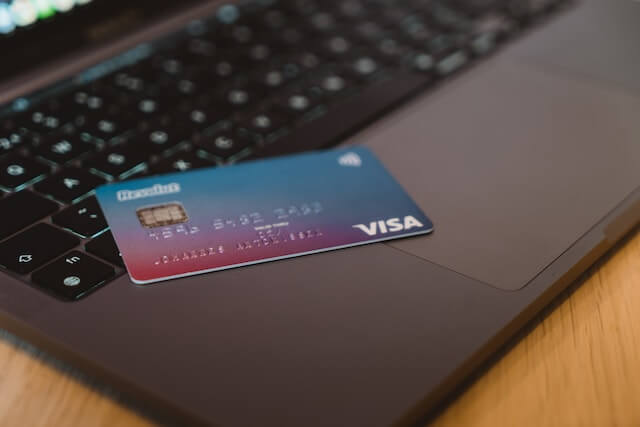Mastering Your Finances: Proven Techniques to Save Money: Whether you’re working to pay off debt, building an emergency fund, or just trying to save money, mastering your finances is essential for achieving financial success. Managing your money can be difficult, especially when it feels like you’re constantly tempted to spend more than you should. Fortunately, there are a few proven techniques to help you keep your spending in check and ensure you’re not spending more than you planned. In this blog post, we’ll be exploring the best ways to avoid overspending and save money.
Create a Budget
One of the best ways to avoid overspending is by creating a budget. This might seem like a daunting task, but it doesn’t have to be complicated. A budget is simply a plan for how much money you’ll spend each month.
Start by listing all your sources of income and all your monthly expenses. This includes rent/mortgage payments, utilities, groceries, transportation costs, entertainment, and anything else you regularly spend money on. Be sure to include any debts you’re paying off, such as student loans or credit card balances.
Next, prioritize your expenses and assign each one a category, such as essential or non-essential. For example, rent/mortgage payments, utilities, and groceries would be considered essential, while entertainment and dining out might be non-essential.
Once you have a clear picture of your income and expenses, decide on a budget for each category. Make sure to leave some wiggle room for unexpected expenses, such as car repairs or medical bills.
There are many free budgeting tools available online to help you get started. You can also use spreadsheets or pen and paper if you prefer. The important thing is to find a system that works for you and stick to it.
Remember, creating a budget is just the first step. To make it effective, you need to regularly track your spending and adjust your budget as needed. This will help you stay on track and avoid overspending, even when unexpected expenses come up.
Use Cash instead of Cards
It’s easy to overspend when using a credit or debit card, as the transaction is abstracted from the actual exchange of money. That’s why it’s often better to use cash instead of cards to keep your spending in check.
Using cash forces you to physically hand over money, which makes you more aware of how much you are spending. It also helps you stay within your budget, as you can only spend the cash you have on hand.
Additionally, using cash helps you avoid credit card debt, which can spiral out of control quickly. When using a credit card, it’s tempting to spend more than you can afford, and the high interest rates can add up quickly.
While it may be inconvenient to use cash instead of cards, it can be a valuable tool in mastering your finances and avoiding overspending. So, consider withdrawing a set amount of cash each week to use for your purchases, and watch how much more mindful you become of your spending habits.
Make a Shopping List and Stick to it
One of the simplest ways to avoid overspending is to make a shopping list and stick to it. Before heading out to the grocery store or mall, take some time to create a detailed list of what you need to purchase. Be specific about the brands, sizes, and quantities of the items you need. By creating a list, you can ensure that you only purchase what is necessary and avoid buying things that you don’t need.
Once you have your shopping list, the next step is to stick to it. It can be tempting to add a few extra items to your cart, especially if they are on sale or if you spot something that catches your eye. However, every additional item that you add to your cart increases the amount that you will spend.
If you struggle to stick to your shopping list, try the following techniques:
- Set a Time Limit: Give yourself a set amount of time to complete your shopping. This can help you focus on finding the items you need and avoid browsing for unnecessary items.
- Shop Alone: Shopping with friends or family can be fun, but it can also lead to peer pressure to buy things that you don’t need. Try shopping alone to avoid this.
- Use a Basket, Not a Cart: If you are shopping for a small number of items, opt for a basket instead of a cart. This will help you physically limit the amount of items you can purchase.
Remember, sticking to your shopping list is an essential part of managing your finances and avoiding overspending. Make it a habit, and you will see the benefits in your bank account.
Avoid Impulse Buys
One of the quickest ways to overspend is by giving in to impulsive buying. These are purchases that you make on a whim, without putting much thought into them. It could be anything from grabbing that cute top you saw in the store window to buying snacks you didn’t plan for. If you want to stick to your budget, it’s important to avoid these kinds of purchases. Here are a few tips to help you do just that:
- Make a list: Before you leave the house, make a list of everything you need to buy. Stick to that list when you get to the store. This will help you avoid being tempted by items that catch your eye but aren’t necessary.
- Don’t shop hungry: Shopping when you’re hungry is a recipe for disaster. Not only will you be more likely to buy things you don’t need, but you’ll also be more likely to indulge in expensive snacks.
- Wait before you buy: When you see something you like, don’t buy it right away. Give yourself a day or two to think it over. Often, you’ll find that the urge to buy it has passed.
- Consider the true cost: Before you make an impulse purchase, think about the true cost. How many hours of work will it take to pay for this item? Is it worth it?
- Avoid sales: Sales can be tempting, but they can also lead to impulse buying. If you do decide to shop during a sale, make sure you’re only buying things you actually need.
By avoiding impulse buying, you’ll be able to save money and stick to your budget. It may take some practice, but it’s definitely worth it in the end.
Mastering Your Finances: Proven Techniques to Save Money
- 10 Tips for Buying a House on a Tight Budget
- The Best Credit Cards for Cashback Rewards in 2023
- Understanding Credit Scores: Your Guide to Financial Health
Practice Mindful Spending.
It’s not always about denying yourself things that you want, but more about understanding your priorities and aligning your spending with your values. This means taking the time to evaluate your purchases and understanding why you’re buying certain things. Before making a purchase, ask yourself, “Do I really need this?” or “Is this the best use of my money?”
Additionally, be mindful of the emotions that come with spending. Often, we buy things to make ourselves feel better, but the satisfaction is only temporary. Practicing mindfulness when spending can help you make more intentional choices that align with your goals and values. It can also help you avoid emotional or impulse purchases.
To practice mindful spending, consider creating a list of your values and priorities, and use this as a guide when making purchasing decisions. Take the time to research products or services before buying, and consider alternatives that align more closely with your values. When you do make a purchase, savor the experience and appreciate what you have instead of constantly seeking the next thing.
By practicing mindful spending, you can develop a healthier relationship with money, reduce the temptation to overspend, and ultimately, achieve your financial goals. Remember, financial stability and freedom come from conscious choices and consistent actions over time.









